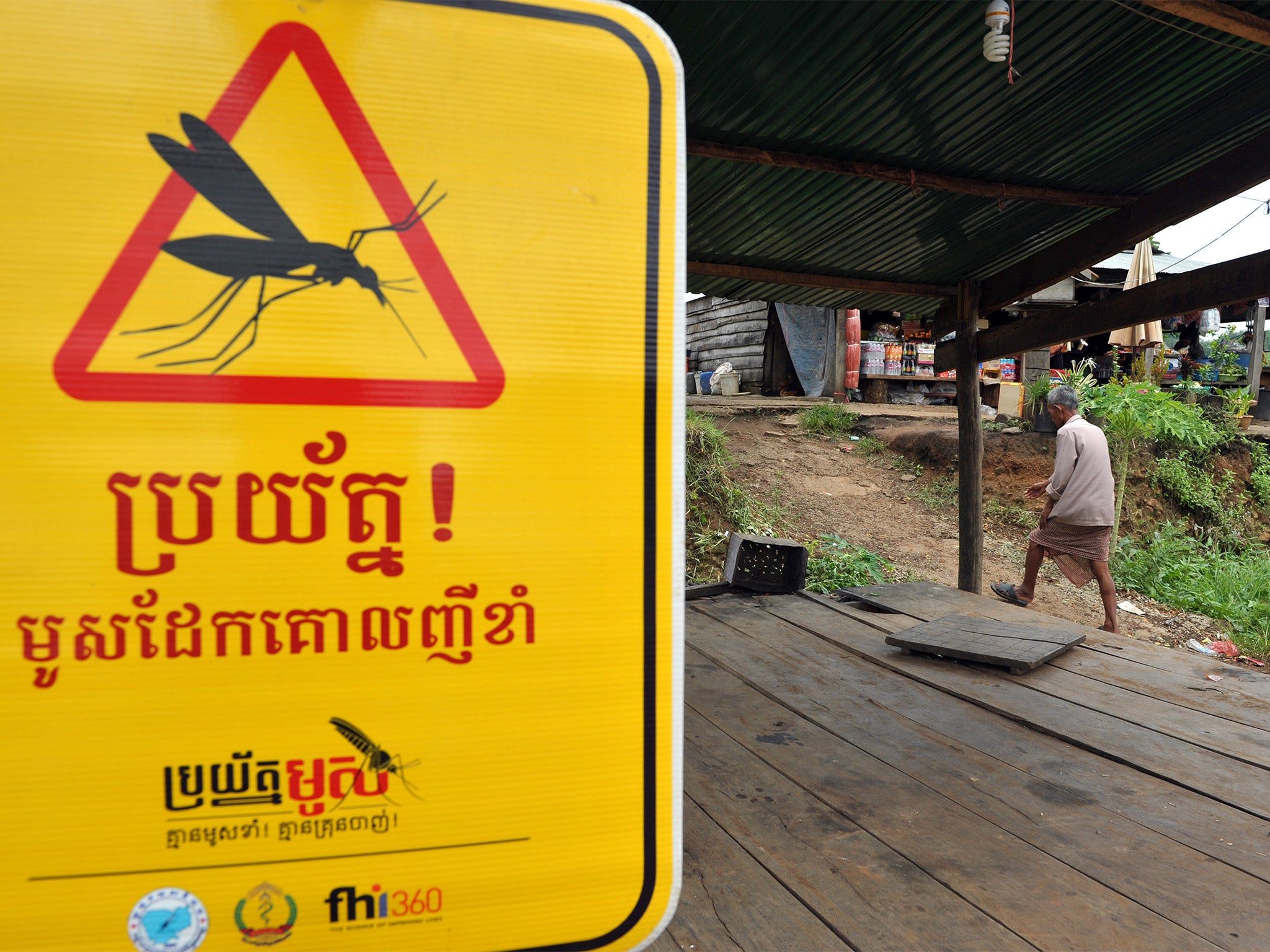Drug-resistant malaria strains appear across south east Asia

Your support helps us to tell the story
From reproductive rights to climate change to Big Tech, The Independent is on the ground when the story is developing. Whether it's investigating the financials of Elon Musk's pro-Trump PAC or producing our latest documentary, 'The A Word', which shines a light on the American women fighting for reproductive rights, we know how important it is to parse out the facts from the messaging.
At such a critical moment in US history, we need reporters on the ground. Your donation allows us to keep sending journalists to speak to both sides of the story.
The Independent is trusted by Americans across the entire political spectrum. And unlike many other quality news outlets, we choose not to lock Americans out of our reporting and analysis with paywalls. We believe quality journalism should be available to everyone, paid for by those who can afford it.
Your support makes all the difference.Years of progress in preventing deaths from malaria could be reversed by the emergence of drug-resistant strains, which are now firmly established across south east Asia, scientists have said.
Cases of drug-resistant malaria have surfaced in Thailand, Cambodia, Vietnam and Burma, experts said, warning that urgent action was needed to prevent their spread west into Bangladesh and India.
This is the third time that strains of the malaria parasite have evolved to be immune to the first-choice drugs available to treat the disease, which despite recent gains still kills more than 600,000 people worldwide every year. The emergence of malaria resistant to chloroquine drugs in the late 1950s led to millions of deaths.
Scientists warned that we now face the prospect of history repeating itself, as resistance grows to the most effective modern malaria drug, artermisinin.
In a survey of more than 1,200 malaria patients in 10 countries, researchers funded by the UK Department for International Development (DFID) found that artemisinin-resistant strains of the most deadly form of the malaria-causing parasite – Plasmodium falciparum - were well established in south east Asia. In eastern Thailand, near the Cambodian border, where resistance first emerged in 2005, more than two thirds of patients surveyed still carried malaria parasites in their blood 72 hours after treatment – a clear indicator of drug-resistance.
Researchers were also concerned to find that resistant strains of the parasite were more likely to be passed on from patients to mosquitoes, meaning that they could be spread more efficiently than non-resistant forms.
Fortunately, researchers found no evidence that artemisinin-resistant malaria had yet taken hold in Africa.
Dr Jeremy Farrar, director of the UK’s Wellcome Trust, a charitable foundation funding medical research, said that drug resistance was no longer a problem for the future but “today’s reality”.
“If resistance spreads out of Asia and into Africa much of the great progress in reducing deaths from malaria will be reversed,” he said. “Our ability to respond to these rapidly emerging health problems depends on swift gathering of evidence, which can be quickly translated into public health and clinical interventions that are then implemented.”
Researchers from the Tracking Resistance to Artemisinin Collaboration (TRAC) found that one possible means of slowing the spread in the short-term may be to extend the course of malaria treatment to six days, from the three standard days, but added that this would only be a “temporary solution”.
"It may still be possible to prevent the spread of artemisinin-resistant malaria parasites across Asia and then to Africa by eliminating them, but that window of opportunity is closing fast,” said Nicholas White, professor of tropical medicine at Oxford and senior author of the study, which is published in the New England Journal of Medicine today.
Currently around half the world’s population are considered at risk of malaria infection. A substantial reduction in the number of deaths caused by the disease has been achieved in recent years, with death rates dropping by 42 per cent by 2000, representing about 3.3 million lives saved. The burden of the disease is heaviest in Africa, with most deaths occurring in children under five.
Along with tuberculosis and HIV/AIDS it is considered one of the key global health threats from infectious disease.
The success has prompted many malaria-endemic countries to focus their efforts on eradicating the disease altogether, but this may prove impossible now without next generation drugs.
New anti-malarials, which could one day replace artemisinin as the first choice treatment, are in development but they are unlikely to widely available for several years.
Join our commenting forum
Join thought-provoking conversations, follow other Independent readers and see their replies
Comments